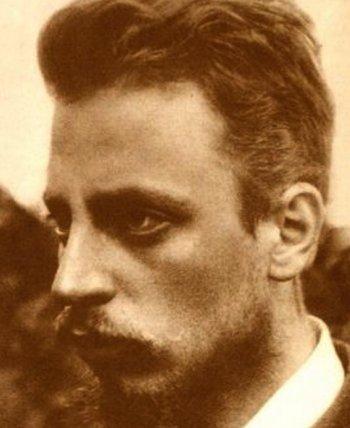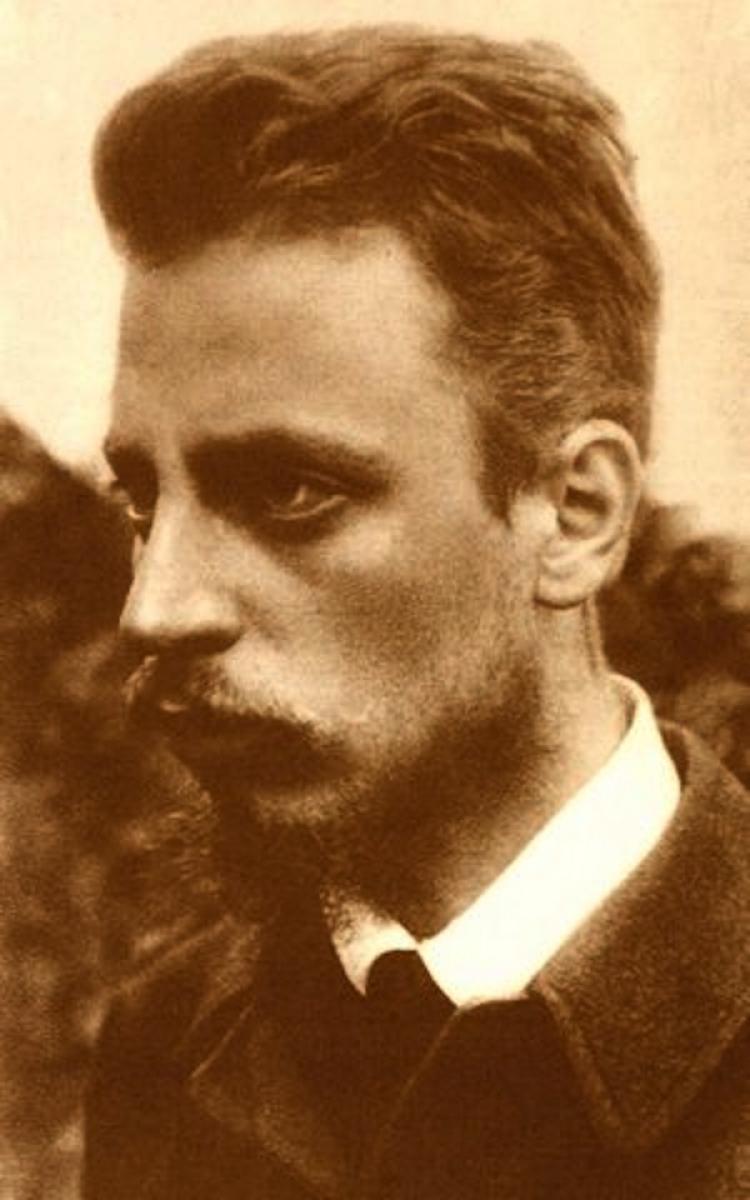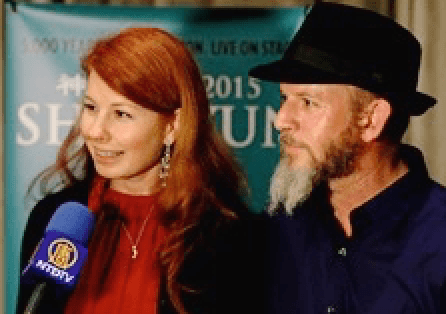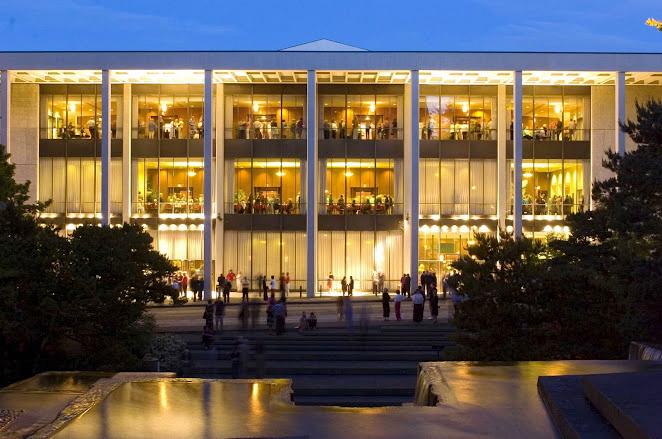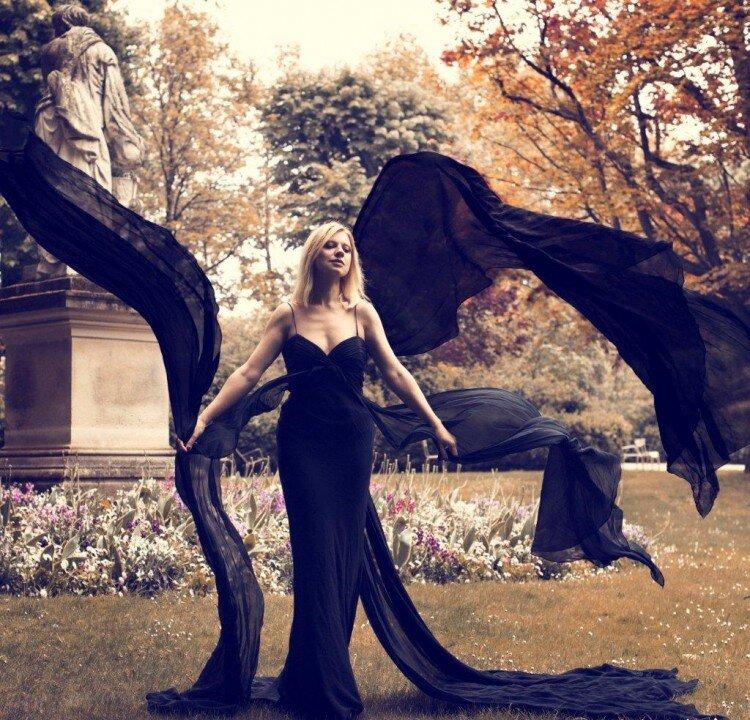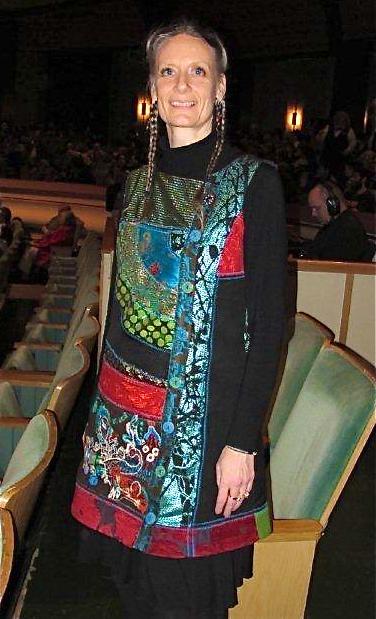Harvard University Press will release Dr. Mark Harman’s new translation of Rainer Maria Rilke’s (1875-1926) popular prose masterpiece “Letters to a Young Poet” on April 4. The work is a collection of 10 letters written in German to a young soldier considering writing poetry. Ultimately, the work came to be known for its insights on the nature of art and life.
In his letters to 19-year-old Franz Kappus, Rilke advises him to live an inspired life. A great poet comes to this world with a great mission and, in Rilke’s words, with a “heart overburdened with infinite responsibilities.” (From the essay “The Young Poet”).
Rilke committed his life to the prophetic task of the poet, who “from his early days, has been destined to put in motion supreme forces within his own heart.”
Rilke describes his poetic mission thus: “If I look into my conscience I see but one law, relentlessly commanding: to isolate myself inside myself and in a jiff, create what I was destined to.”
Passionately pursuing his vocation, Rilke composed about 10,000 letters in addition to his famous “Duino Elegies” and “Sonnets to Orpheus.” Written in the beginning of the last century, they remain an inexhaustible source of remarkable insights and inspiration.
The poet saw his role to be a mirror reflecting depths that are commonly not seen.
“And so we stand with mirrors …
Catching … the image from afar
Acknowledging this pure image …
Catchers, that’s what we are!
It comes invisibly through the air, and yet
How completely the mirror meets it …”
(From “Rainer Maria Rilke: Masks and the Man” by H.F. Peters)
In the letter written in Worpswede, Germany, in July 1903, Rilke advises Kappus with startling insight and wisdom: “Don’t be confused by surfaces; in the depths nothing is accidental, there is only a law.”
Rilke thought in a profound, cosmic way. Predicting “the great renewal of the world,” Rilke contemplates that “man and maid, freed of all false feelings and reluctances, will seek each other not as opposites, but as brother and sister, as neighbors, and will come together as human beings.”
Rilke called upon shifting people’s attention away from the earth, “a speck of dust in the universe … Just imagine how small and insignificant all earthly toils would suddenly appear at the moment when our earth would shrink to the tiniest, swirling, aimless particle of an infinite world! And how the human being would have to grow in size on his ‘small earth’!”
Rilke’s letters comprise a unique archive of ideas and intuitions that gave birth to his lofty poetry.
Rilke was convinced that the only way to approach God was through art. “How other, future worlds will ripen to Gods I do not know, but for us art is a way,” he wrote. For him, God is the one “who is and is and is/ amidst the trembling time.”
A famous Russian poet Marina Tsvetaeva, with whom Rilke exchanged highly emotional poetic letters in the last year of Rainer’s life, wrote to him that his books “have done more for God than all the philosophers and priests taken together.”
Considered a cosmopolitan poet, Rilke traveled extensively throughout Russia, France, Italy, and other counties, making his home wherever he had stayed. These voyages inspired many beautiful poems but he often reiterated that “the only journey is the one within.”
The new translation will include a revealing introduction by Professor Mark Harman. For more information, please visit the Harvard University Press website.
In his letters to 19-year-old Franz Kappus, Rilke advises him to live an inspired life. A great poet comes to this world with a great mission and, in Rilke’s words, with a “heart overburdened with infinite responsibilities.” (From the essay “The Young Poet”).
The Role of a Poet
Rilke committed his life to the prophetic task of the poet, who “from his early days, has been destined to put in motion supreme forces within his own heart.”
Rilke describes his poetic mission thus: “If I look into my conscience I see but one law, relentlessly commanding: to isolate myself inside myself and in a jiff, create what I was destined to.”
Passionately pursuing his vocation, Rilke composed about 10,000 letters in addition to his famous “Duino Elegies” and “Sonnets to Orpheus.” Written in the beginning of the last century, they remain an inexhaustible source of remarkable insights and inspiration.
The poet saw his role to be a mirror reflecting depths that are commonly not seen.
“And so we stand with mirrors …
Catching … the image from afar
Acknowledging this pure image …
Catchers, that’s what we are!
It comes invisibly through the air, and yet
How completely the mirror meets it …”
(From “Rainer Maria Rilke: Masks and the Man” by H.F. Peters)
In the letter written in Worpswede, Germany, in July 1903, Rilke advises Kappus with startling insight and wisdom: “Don’t be confused by surfaces; in the depths nothing is accidental, there is only a law.”
Rilke thought in a profound, cosmic way. Predicting “the great renewal of the world,” Rilke contemplates that “man and maid, freed of all false feelings and reluctances, will seek each other not as opposites, but as brother and sister, as neighbors, and will come together as human beings.”
A Higher Perspective
Rilke called upon shifting people’s attention away from the earth, “a speck of dust in the universe … Just imagine how small and insignificant all earthly toils would suddenly appear at the moment when our earth would shrink to the tiniest, swirling, aimless particle of an infinite world! And how the human being would have to grow in size on his ‘small earth’!”
Rilke’s letters comprise a unique archive of ideas and intuitions that gave birth to his lofty poetry.
Rilke was convinced that the only way to approach God was through art. “How other, future worlds will ripen to Gods I do not know, but for us art is a way,” he wrote. For him, God is the one “who is and is and is/ amidst the trembling time.”
A famous Russian poet Marina Tsvetaeva, with whom Rilke exchanged highly emotional poetic letters in the last year of Rainer’s life, wrote to him that his books “have done more for God than all the philosophers and priests taken together.”
Considered a cosmopolitan poet, Rilke traveled extensively throughout Russia, France, Italy, and other counties, making his home wherever he had stayed. These voyages inspired many beautiful poems but he often reiterated that “the only journey is the one within.”
The new translation will include a revealing introduction by Professor Mark Harman. For more information, please visit the Harvard University Press website.

